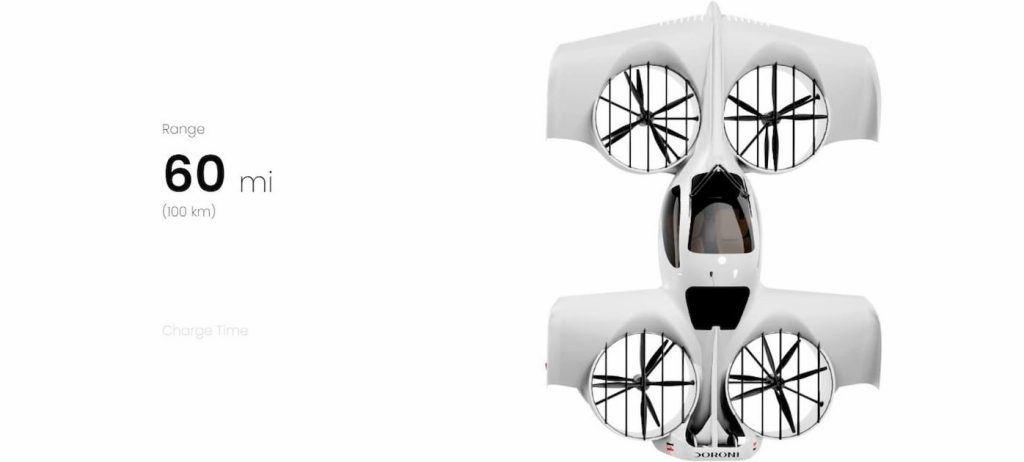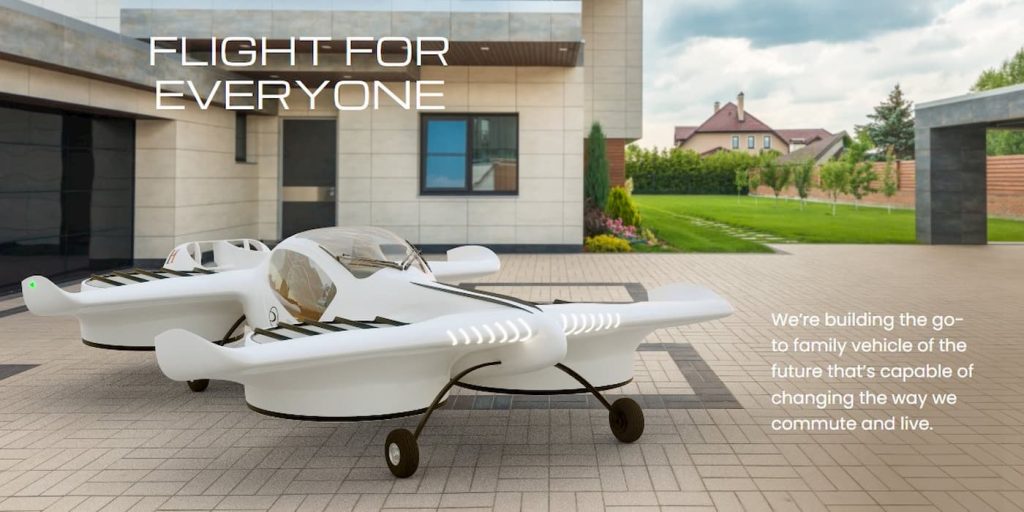
Flying cars are becoming closer to reality than what sci-fi movies may lead you to believe. Another electric flying car “took flight” this week in the US. CEO Doron Merdinger of Miami-based Doroni Aerospace successfully piloted a two-seater personal vertical takeoff and landing (eVTOL) aircraft that fits in your garage.
Electric flying cars are arriving in the US
Electric flying cars are all of a sudden taking the US by storm. Last month, California-based Alef Aeronautics revealed its 100% electric flying car, “Model A,” the first of its kind to receive legal approval to fly from the US government.
According to Alef, the Model A has a 200-mile driving range and can fly for 110 miles. The company says it had gathered over 440 orders for its $300K electric flying car within three months.
Tim Draper, an early Tesla investor and well-known venture capitalist, invested $3 million in seed money to help jump-start the program, becoming the pioneering investor. Model A production is slated to begin in late 2025, with deliveries following shortly after.
Meanwhile, on the other US coast, Doroni Aerospace is pioneering its own path. This past week, the company’s CEO became one of the first to successfully test pilot a 2-seater eVTOL in the US.
Merdinger explained the test run “felt like floating on a cushion of air, experiencing a level of freedom and excitement that is unparalleled.” Adding, “This is just the beginning for us.”
Speaking on the Bloomberg Businessweek Podcast Tuesday, Merdinger, who formerly served in the Israeli Air Force intelligence, explained its manned 2-seater eVTOL, how it works, and what he envisions it being used for.
What’s next for electric flying cars in the US?
When asked about the likelihood of owning a flying car in our lifetime, Merdinger said the company is already doing it.
Although many Sci-fi movies would have you believing flying cars need jet engines, Doroni is doing it with all-electric propellers and semi-autonomous tech.
The eVTOL has ten electric motors altogether. Each of the four ducts contains two e-motors with patented ducted propellers for a total of eight designed for vertical flight and an additional “two pushers for efficient flight.”
The system is simple to use, with semi-autonomous capabilities to guide you to different levels. There is one control stick you push forward, backward, or to the side.

According to Doroni’s website, the 23-foot long, 15-foot wide, and 5.5-foot tall eVTOL weighs 1,650 lbs. It also has a top speed of 140 mph (100 mph cruising speed), a 60-mile range, and fast charging from 20% to 80% in under 20 mins.
Merdinger says the company already has over 300 requests for preorders and is aiming to begin deliveries by 2025.
One of its customers, for example, is a doctor who wants to use the eVTOL to take to work and skip traffic.
To fly the electric aircraft, you will need a certification. Currently, you need at least 20 hours of experience, 15 in the vehicle, and another five solo.

The biggest eVTOL segment, according to Merdinger, is the “Air Taxi” or ride-sharing businesses. Many air taxi companies are already aiming to get to market next year.
Although Air Taxi’s are designed for big cities like New York or Chicago, Doroni is not aiming for this market. At least not immediately. Instead, the company says there is enough space to fly everywhere, particularly in suburban areas.
Doroni isn’t looking to fly at 30,000 feet like an aircraft, but instead at just a few hundred feet. The idea behind its electric flying car is not just to get from point A to point B but rather to “enjoy nature,” according to Merdinger.
Top comment by Tracy
Am I the only one who thinks these things are totally awesome, but hate the idea at the same time?
Even if they can make them silent, I don't look forward to a future where the skies are full of these, delivery drones, and whatever else is coming.
Noise pollution, visual pollution and even less privacy.
Having said that, if I win the Powerball tonight, I'm totally buying one 😉
The company expects to produce about 120 to 125 units by 2025 or 2026, with plans to scale up to 2,500 annually.
Electrek’s Take
To be fair, Doroni’s eVTOL taking off vertically doesn’t exactly convince me that flying cars will be on the streets anytime soon.
The company has a unique vision involving personal use, unlike many companies looking to use eVTOLs for ride-sharing in cities. At the same time, Doroni is showing more than most “flying car” companies in terms of what its tech is able to accomplish.
Like Merdinger said, “this is just the beginning,” as the company continues to work to bring its electric flying car to market. We’ll keep you updated on the flying electric car market. Stay tuned for more.
FTC: We use income earning auto affiliate links. More.




Comments